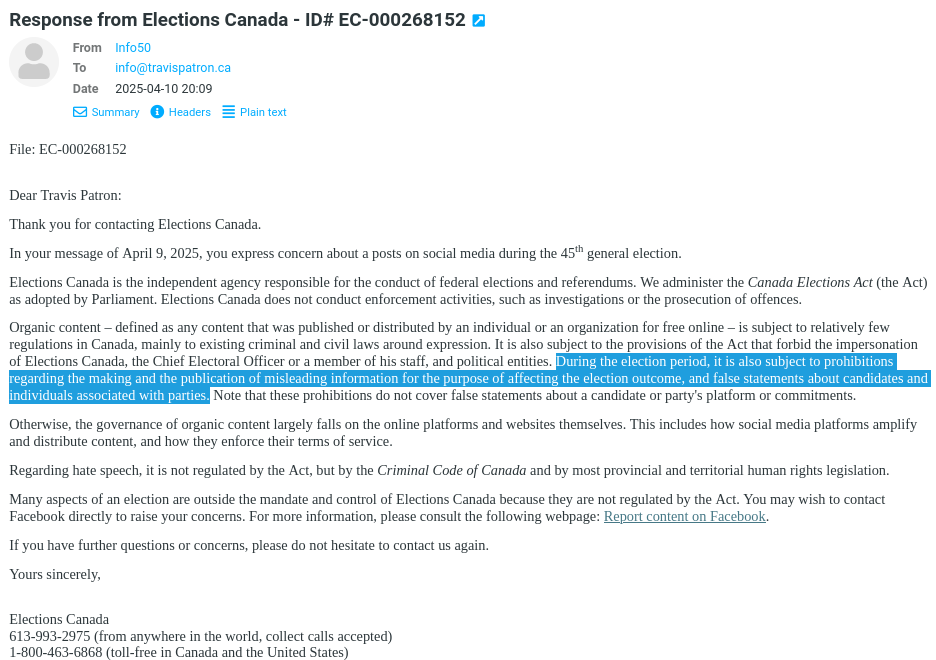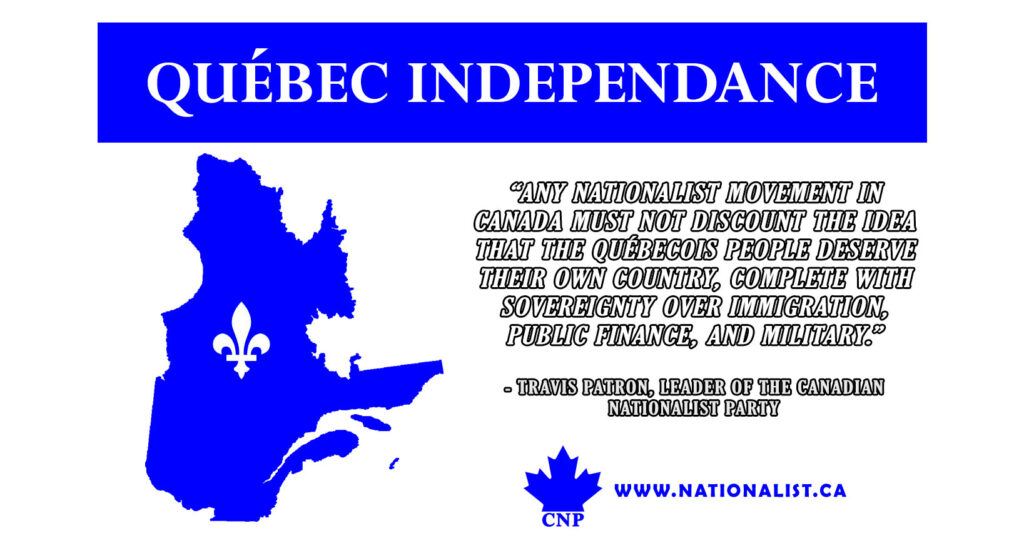Date of incident: April 28th, 2025 (45th Federal Election)
Elections Canada complaint: #PBR2Q0SN
There is a common maxim in law that justice is blind. No favouritism should be shown to any party, as each are to be judged impartially:
“Do not pervert justice; do not show partiality to the poor or favoritism to the great, but judge your neighbor fairly.”
- Leviticus 19:15
However, Canada has recently departed from this mandate by prejudicing our national interests in favour of “post-nationalism” – a policy first announced by the Liberals in 2015. Evidently, the Federal Court has followed this call by neglecting to review suspected foreign interference in our democracy (occurrence #2019-919038).
During the 45th Federal Election (April 28th, 2025), I was listed as an independent candidate (as opposed to my political affiliation listed in the nomination papers) because the returning officer for my electoral district of Souris-Moose Mountain could not confirm the registration status of the Canadian Nationalist Party:
“I am running as an ‘Independent’ because, at the discretion of the returning officer, the registration status of the Canadian Nationalist Party could not be determined at the time of nomination.”
However, the complainant in the matter that led to the de-registration of the Canadian Nationalist Party on March 31st, 2022 (Canadian Anti-Hate Network), used Elections Canada’s disclosure of our 2019 registration application to submit criminal complaints to the RCMP under occurrence #2019-919038. This disclosure is governed by the Privacy Act, as are judicial reviews in actions relating to international affairs and defence.
This matter is potentially injurious to national security because we have not received an opportunity under the Privacy Act to answer to the charges while there is suspicion they were laid against the party leader using information obtained from a foreign entity (special operations, section 8 Foreign Interference and Security of Information Act). It also demonstrates that the Government of Canada is failing to maintain our democracy.
By refusing to uphold our right to a judicial review as described by the privacy notice in Elections Canada’s agreement (Section O, EC 20360), the Government of Canada is neglecting our status as a political party:

In 2019, the Elections Canada disclosed to the Canadian Anti-Hate Network ~263 membership declarations contained in this application and used this disclosure in furtherance of de-registering the Canadian Nationalist Party. Both the disclosure of these declarations (Section O) and the disclosure of information used to lay charges under occurrence #2019-919038 are governed by the Privacy Act.
The Canadian Nationalist Party has the right to a judicial review in the matter by the Federal Court. However, we have been denied that right while our candidates are prohibited from standing for election under our ‘Nationalist’ affiliation. This is prejudicial toward our nation interests.
Therefore, the Canadian Nationalist Party, as it was recorded in Elections Canada’s registry on the date of registration (September 15th, 2019), ought to be reinstated pursuant section 70 of the Supreme Court Act (Supreme Court file #41944):
Consent to Reversal of Judgment
A respondent may consent to the reversal of the judgement appealed against by giving to the appellant a notice entitled in the Court and in the cause, and signed by the respondent stating that the respondent consents to the reversal of the judgment, and thereupon the Court shall pronounce judgment of reversal as of course.
- Section 70, Supreme Court Act
These proceedings against our nation have been done in an attempt to transition Canada into the “world’s first post-national country” for the benefit of foreign powers.
This is a serious crime and the appropriate measures must be taken to ensure that it is thoroughly investigated and those responsible prosecuted to the fullest extent of Canadian law.

